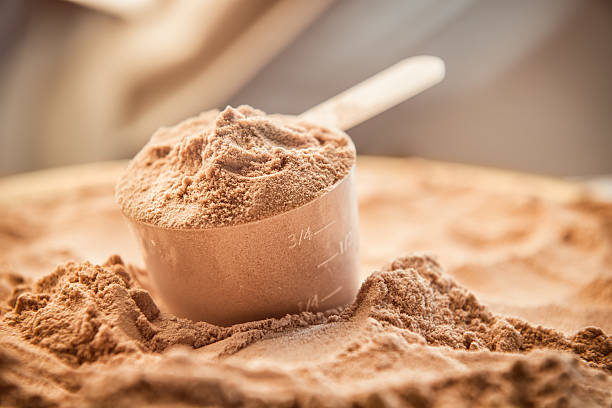Whey protein lowers blood pressure and improves endothelial function and lipid biomarkers in adults with prehypertension and mild hypertension: results from the chronic Whey2Go randomized controlled trial.
The Benefits of Whey Protein to Blood Pressure

Many athletes and bodybuilders use whey protein to help them build muscle mass, though the evidence of this benefit is not terribly strong, according to Harvard Health Publishing. Whey protein also may help people heal burns or chronic wounds, according to the Mayo Clinic.
Some infants may better tolerate whey protein that is broken down into smaller sizes (hydrolyzed) than proteins found in cow's milk and soy-based formulas, Mayo Clinic points out. Infants also are less likely to have allergic reactions to dairy and to develop atomic dermatitis (eczema) when given whey protein that has been hydrolyzed.
Ginger Hultin, MS, RDN, a Seattle-based spokesperson for the American Academy of Nutrition and Dietetics, says while most studies of whey protein and its effect on blood pressure are small and results have been mixed, there is some evidence that whey protein may help lower blood pressure.
Evidence Whey Works
A small study in China published in the journal Food Science & Nutrition in April 2019 found that whey protein helped lower systolic blood pressure in pre- and mildly hypertensive adults who also had overweight and obesity. The 65 participants in the study were randomly assigned to take 30 grams of whey protein or a placebo daily for 12 weeks.
Those who consumed whey protein not only had significantly lower blood pressure at the end of the 12 weeks but had lost body fat and had smaller waist sizes. The researchers believe whey's blood pressure-lowering effects were related to their losing body fat as well.
Another small study published in December 2016 in the American Journal of Clinical Nutrition found that participants who consumed whey protein regularly had lowered their systolic (top nu
mber) and diastolic (bottom number) blood pressures at the end of eight weeks. They also saw participants given whey protein lower other markers for cardiovascular disease.
Sources of Whey Protein
You can find whey protein in whole foods including ricotta cheese, cottage cheese and milk from cows. You can also buy whey protein as a powder supplement. Then you can combine it with ice and fresh fruit to make a smoothie, or sprinkle it on oatmeal, applesauce, yogurt and other foods, Hultin says.
Kate Patton, MEd, RD, a nutritionist at the Cleveland Clinic recommends consuming 20 to 56 grams per day if you're looking to reduce your blood pressure with whey protein.
Side Effects
Most people tolerate whey protein well, the Mayo Clinic says. However, if you have an allergy to dairy products, you shouldn't take it. Whey protein can reduce absorption of certain medications. These include certain antibiotics and medications for osteoporosis, Mays.
Always check with your doctor before starting any new supplement, Hultin says. "You should discuss potential interactions with your doctor and pharmacist."
If you find that whey protein helps lower your blood pressure, "you want to make sure that it isn't going too low and that your dietary changes and supplements aren't compounding the effectiveness of your medications," Hultin says.
Healthy Blood Pressure
Most people should aim to keep their blood pressure around 120/80 millimeters of mercury or less, according to the American Heart Association. The top number is the pressure on the walls of your heart when it's beating. The bottom number is the pressure on your arteries when your heart is at rest between beats.
Always remember that no one food or supplement will make that much of a difference in blood pressure, Hultin says. "I can't emphasize enough how this needs to be part of an overall healthy dietary pattern," she says.






